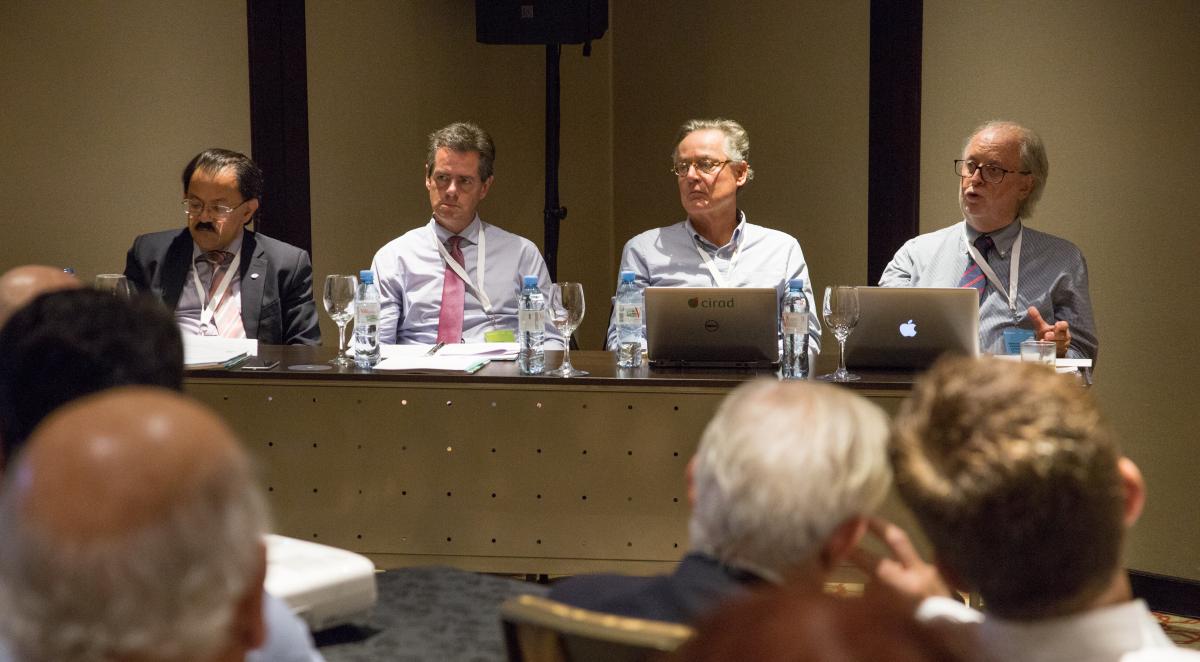New political-institutional frameworks and coordinated work by international cooperation agencies are key to driving bioeconomy in Latin America and the Caribbean

Buenos Aires, 22 November 2018 (IICA). Greater market incentives and new political-institutional conditions are necessary to enable agriculture to better capitalize on biological resources and to create new opportunities for rural territories across the Americas. This was one of the conclusions reached by the international specialists who participated in the panel discussion entitled “The potential for bioeconomy in Latin America and the Caribbean,” organized by the Inter-American Institute for Cooperation on Agriculture (IICA).
Hugo Chavarría, Coordinator of the Bioeconomy and Production Development Program of IICA, compiled the conclusions of the specialists, who noted that the region’s biological wealth and availability of natural resources, in addition to increased knowledge and the emergence of disruptive technologies, afford significant production opportunities within the framework of bioeconomy.
The event, which was organized by the Secretariat of Agroindustry of Argentina and FAO, in partnership with IICA, took place as part of the Week of Agriculture and Food in Buenos Aires.
“By capitalizing on bioeconomy, we can drive production development through local value-adding, contribute to fulfilling environmental commitments agreed on by the countries, as well as generate new opportunities for stakeholders in rural territories, especially youth and women,” explained Chavarría.
Bioeconomy is regarded as the broadest approach to driving sustainable development, based on production and consumption patterns, in keeping with the goals of preserving resources as well as mitigating and adapting to climate change. Bioeconomy involves, on the one hand, the implementation of development strategies based on an intensive, efficient use of resources, technologies and biological processes, and, on the other hand, the sustainable provision of goods and services required by societies.
IICA’s new institutional road map, the 2018-2022 Medium-term Plan, includes Bioeconomy and Production Development as one of the Institute’s main work programs.
Bioeconomy also boosts the economic density of territories and optimizes the interrelationship between chains. The objective is to utilize resources and biological processes in a more efficient and sustainable manner to add value through knowledge, thereby discarding the outdated notion that agriculture is solely tied to primary products.
Improved production use of biological resources across the region “will require political-institutional conditions, as well as market incentives, to make it viable,” added Chavarría, who also noted that “these conditions will also allow for implementing strategies and investments to capitalize on biomass and new uses for biodiversity.”
The specialists agreed that international cooperation also plays a key role in encouraging the region to capitalize on bioeconomy.
Chavarría mentioned that participants at the event also underscored the need for organizations to work in a coordinated, integrated manner in order to “raise awareness and provide evidence of existing potential, build capacities for capitalizing on bioeconomy, mobilize experiences, generate opportunities for dialogue, facilitate South-South Cooperation, as well as support the development and exchange of science, knowledge and technology to better capitalize on bioeconomy.”
In this regard, he stated that “all of these forms of support should enable countries and territories to develop their own visions, policies and strategies to capitalize on bioeconomy, based on existing potential.”
The lectures were delivered by Andrés Murchison, Secretary of Food and Bioeconomy of Argentina; Marcelo Poppe of the Center for Strategic Studies and Management (CGEE) of Brazil; Adrián Rodríguez, Policy Officer of the United Nations Economic Commission for Latin America and the Caribbean (ECLAC); and researcher Guy Henry of the French Agricultural Research Centre for International Development (CIRAD) in France.
The panel was introduced by Eduardo Trigo, Advisor to the Bioeconomy and Production Development Program of IICA, and moderated by Federico Villarreal, Director of Technical Cooperation of the specialized Inter-American agency.
Additionally, as part of the efforts to work in a coordinated and integrated manner to take better advantage of resources as well as strengthen bioeconomy, the Bioeconomy and Production Development Program of IICA organized a workshop to learn about each institution’s experiences, projects and initiatives in this area, as well as discuss possible ways to collaborate and conduct joint work.
Representatives of IICA, UNESCO, CIRAD, CATIE, ECLAC, EMBRAPA, CGEE, the Foundation for Agricultural Innovation of Chile, the Dominican Agricultural and Forestry Research Institute (IDIAF-RD) and ICOA Argentina participated in the workshop, during which they identified, analyzed and prepared work proposals to be consolidated over the next few weeks.
More information:
Hugo Chavarría, Bioeconomy and Production Development Program, IICA